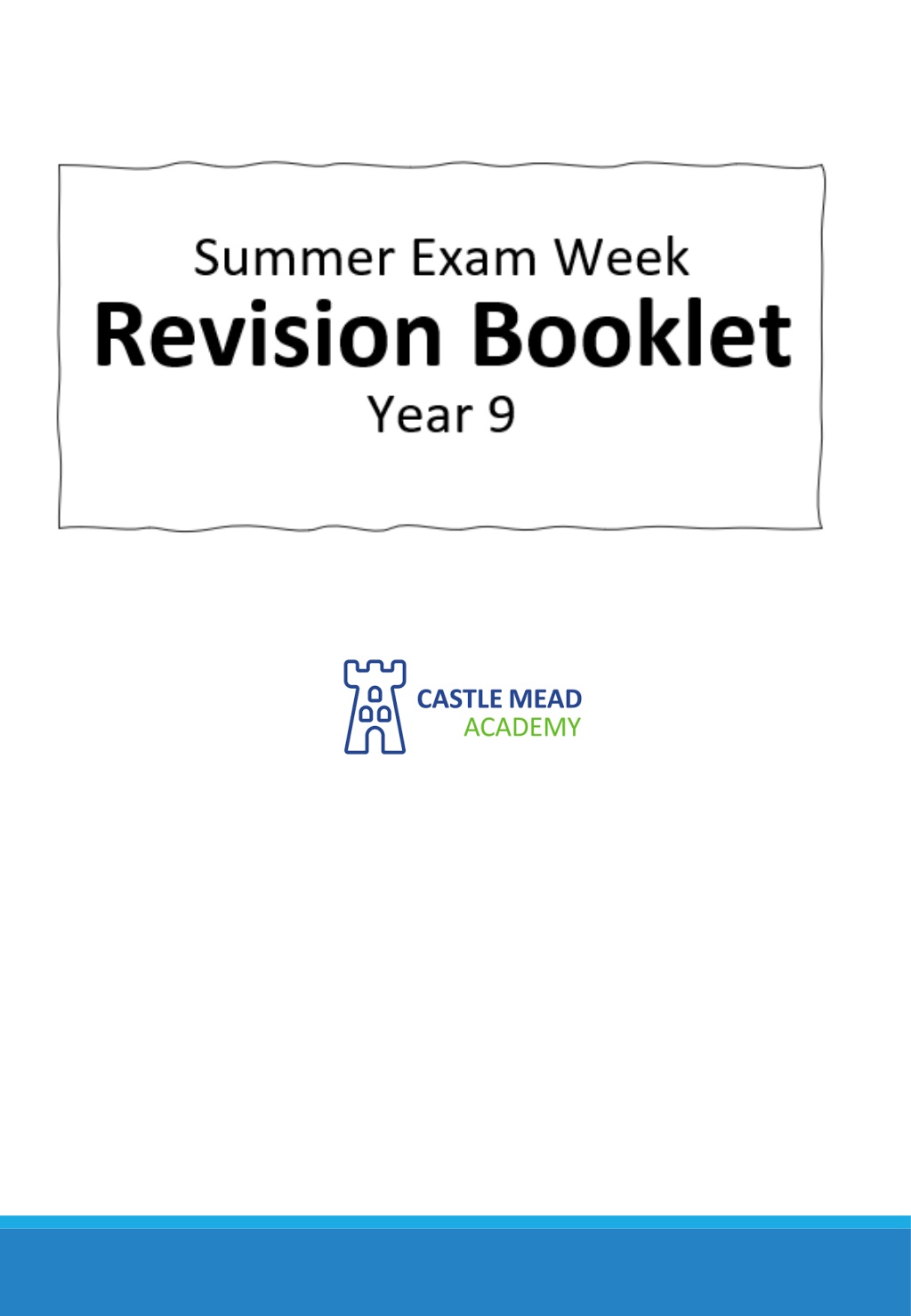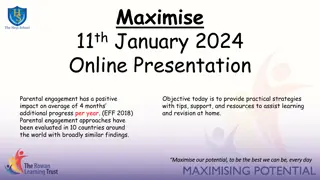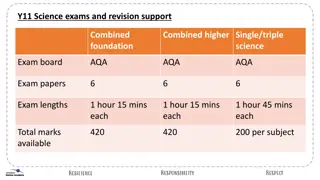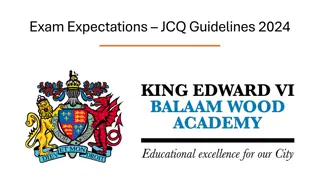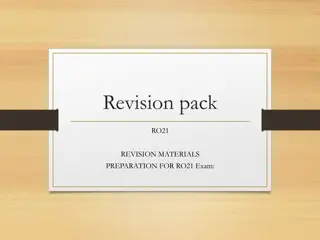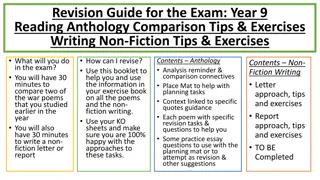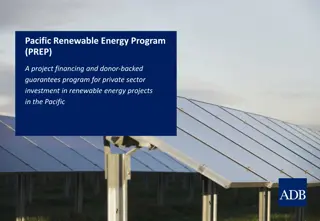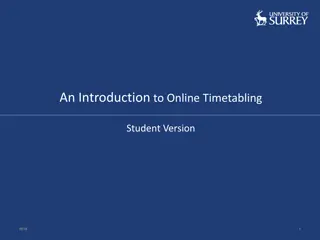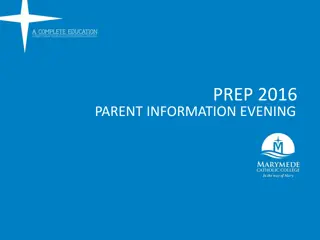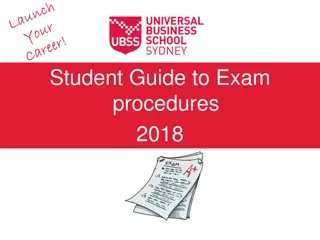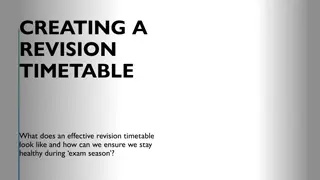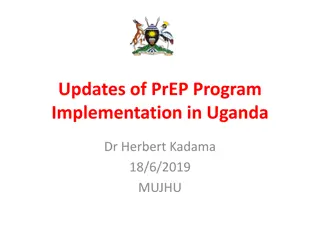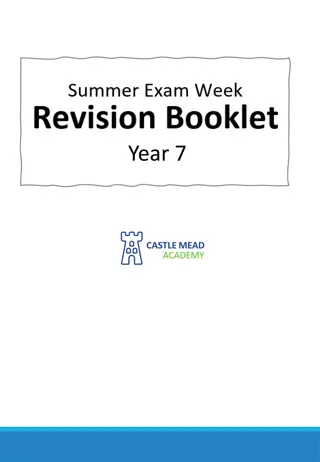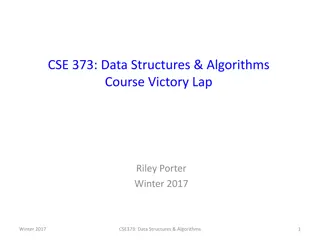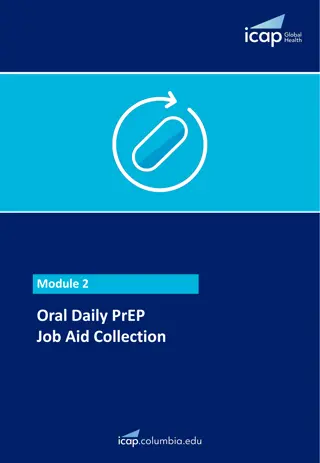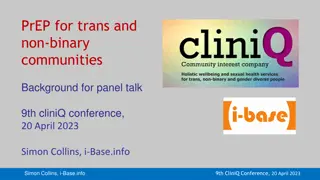Ultimate Exam Prep Guide: Tips, Timetables, Revision, and Self-Care
Prepare effectively for your end-of-year exams with this comprehensive guide that includes creating a revision timetable, tips for self-care during exam week, subject-specific revision strategies, and essential knowledge and skills for English literature. Get ready to ace your exams and manage stress like a pro!
Download Presentation

Please find below an Image/Link to download the presentation.
The content on the website is provided AS IS for your information and personal use only. It may not be sold, licensed, or shared on other websites without obtaining consent from the author. Download presentation by click this link. If you encounter any issues during the download, it is possible that the publisher has removed the file from their server.
E N D
Presentation Transcript
Summer End of Year Exam- Timetable Add in which subjects you will revise for in your revision sessions. Ensure you bring the correct revision materials with you. You will also have your exam timetable printed which has your seat number on for each exam. All of your exams are in the Sports Hall apart from your Music Exam. Just go to your usual Monday period 4 lesson for this.
Revision Timetable Add all of your subjects into the revision timetable below to support with your revision over the next few weeks.
Looking after yourself during Exam Week End of year exams can be stressful, but don t worry, it is normal to feel some nerves when you have exams approaching. There are lots of different ways to prevent stress: 1. Exercise Exercise reduces stress and produces endorphins (chemicals in your brain that make you feel good!). Action: Go outside for a walk or do an indoor workout 2. Sleep It is important that you get a good night sleep to help your brain to work! Action: Get at least 8 hours of sleep a night. 3. Mindfulness Sometimes we need a break from revising and doing some mindfulness activities can help declutter our brains. Action: Complete some pages in your mindfulness booklets. 4. Talk to someone If you feel too stressed, remember, you are not alone so talk to someone. Action: Speak to your friends, families or member of staff if you are feeling really stressed.
How to Revise for English Use the video to make notes on how best to revise for this subject. 1. 2. 3.
You will need to know: - The key conventions (what we can expect of) and structure of the Gothic - Definitions of subject terminology and examples from the texts that we have read (e.g foreshadowing, metaphor, rhetorical questions, symbol, motif, soliloquy, monologue, pathetic fallacy, verisimilitude, tone, declarative sentences, anecdote, anaphora, themes and setting) - The different forms of literature and their conventions (plays, poems, novels) - Key contextual details about the eras of the texts we ve studied: What they believed in the 19th (e.g. Dickens and Shelley) What writers in the 21st century wrote about (e.g. Acevedo and Crossan) Why writers were writing at each of these times - The conventions of different text types have studied (Letters, tragedies, comedies, novels, cautionary tales etc) - The key ideas, themes and messages of the texts we have studied - Key elements of rhetoric - The elements of grammar we have focused on in Language (including apostrophes, connectives, sentences that begin with a subordinate clause, the difference between compound and complex sentences) E n g l i s h You will need to know how to: - The stages of reading, annotating and analysing poetry (the three boxes at the bottom, what a good annotation looks like etc). - Write an analytical paragraph (how it is ordered; how you write a topic sentence) - Write a persuasive open letter. - Identify the parts of a metaphor and comment on the desired effect of that metaphor.
You will need to bring your English books as well to revise. Revision List Subject: English Topic Revised?
How to Revise for Maths Use the video to make notes on how best to revise for this subject. 1. 2. 3.
Castle Mead Mathematics Facts to know Square Numbers Cube Numbers Inverse Operations Fraction Decimal Percentage 13= 1 23= 8 33= 27 43= 64 53= 125 103= 1000 12= 1 22= 4 32= 9 42= 16 52= 25 62= 36 72= 49 82= 64 92= 81 102= 100 112= 121 122= 144 132= 169 142= 196 152= 225 1 + ??? 0.01 1% 100 ??? 1 10 0.1 10% Square and square root 1 5 0.2 20% 1 4 Prime Numbers (exactly two factors) 0.25 25% 2,3,5,7,11,13,17,19,23,29,31 1 3 0. 3 33. 3% Product , Sum, Difference 1 2 0.5 50% ?????? ?????? = ??????? ?????? + ?????? = ??? 1 1 1 100% ?????? ?????? = ?????????? Area of 2-dimensional shapes Algebra Shape measurements Simplify add and subtract like terms 3? 2? + 4? + 5? = 7? + 3? Perimeter length around the edge ADD units mm, cm, m Area 2-dimensional space MULTIPLY 2- dimensions units mm , cm , m Factorise remove the common factor, write in brackets 8? + 12? = 4(2? + 3?) Volume 3-dimensional space MULTIPLY 3- dimensions units mm , cm , m Expand multiply everything inside the brackets by the factor outside 7(2? 3?) = 14? 21? Negative Numbers & Negative Numbers add & subtract Substitute replace the variable with a value and calculate if ? = 5 4? 2 = 4 5 2 = 18 Adding a negative number has the same result as subtracting a positive number 5 + 2 = 3 and 5 2 = 3 negative negative =positive positive negative = negative negative positive = negative Subtracting a negative has the same result as adding a positive 5 2 = 7 and 5 + 2 = 7 negative negative =positive positive negative = negative negative positive = negative
3-Dimensional Shapes Pythagoras Theorem Shape Formulae Sidea ???? ?? ????? ??????? Volume of a prism Side b ??2 Volume of a cylinder ?2 +?2 = hyp2
Revision List Make sure you have your Dr Frost key skills list! Subject: Maths Topic Revised?
How to Revise for Science Use the video to make notes on how best to revise for this subject. 1. 2. 3.
Year 9 Revision Topics DNA Respiration Changes of State Gases in the atmosphere Reactivity of metals Global Warming Convection Lab equipment The digestive system Metals & their uses Insulation Gravitational Potential Energy Elements & Compounds Properties Circuit Symbols Parallel and Series Circuits Photosynthesis Acids & Metal Salts Calculating Speed S c i e n c e
Revision List Subject: Science Topic Revised?
How to Revise for RE Use the video to make notes on how best to revise for this subject. 1. 2. 3.
Year 9 revision list Key facts about Buddhism and Christianity The Abrahamic faiths and all associated key terms Morality absolute, relative The ways people can believe in God Parables Teleological R E Stewardship and dominion Ahimsa Cultural heritage Persecution Genocide People: Martin Luther King Jr, Oscar Romero, Jehovah Secularism Where Jainism comes from Islam: 5 pillars, Islamic art, Haram, Pilgrimage Human rights relating to religion
Revision List Subject: RE Topic Revised?
How to Revise for French Use the video to make notes on how best to revise for this subject. 1. 2. 3.
Year 9 Revise the vocab sheet you have been given in lessons. Plus: Unit 1 Describing myself - Describing myself, age, birthday, physical description, personality description, family, opinions Unit 2 Describing family members avoir and etre, ER verbs Unit 3 Sports and hobbies jouer and faire, opinions plus infinitives, time indicators Unit 4 School life school facilities, subjects, teachers, opinions and reasons, jobs and future plans Unit 5 Where I live describing towns and where you would like to live in the future Unit 6 Food giving opinions of food with reasons, describing healthy lifestyles Unit 7 Holidays countries, activities on holiday, past and future tenses Unit 8 Festivals dates, festivals, past and future tenses + intensifiers, time indicators, complex opinions F r e n c h
Revision List Subject: French Topic Revised?
How to Revise for History Use the video to make notes on how best to revise for this subject. 1. 2. 3.
Revision List Subject: History Topic Revised?
How to Revise for Geography Use the video to make notes on how best to revise for this subject. 1. 2. 3.
Year 9 End of Year Exam Revision Checklist Topic 1: Tropical Rainforests To revise this, you will need your Tropical Rainforests booklet. Knowledge Page no. 4-8 The location and characteristics of tropical rainforests Rainforest stratification Importance of rainforests Impact of palm oil 10-14 16-18 24-27 Topic 2: Globalisation To revise this, you will need your Globalisation booklet. Knowledge Page no. 5-8 Causes of globalisation Impacts of globalisation 9-10 12-15 Global trade (including the how it is unfair) Characteristics of a TNC 24-25 Impacts of Apple on China, Ireland and the DRC 26-31 Topic 3: Oceans To revise this, you will need your Oceans booklet. Knowledge Page no. 6 The importance of the ocean Measuring ocean depth How coral reefs are impacted by climate change and tropical storms 6-10 13-15 How ocean currents regulate the global climate 18-19
Revision List Subject: Geography Add the topics from the checklist provided Topic Revised?
How to Revise for Design Technology Use the video to make notes on how best to revise for this subject. 1. 2. 3.
Year 9 Product Design D e s i g n T e c h n o l o g y Timbers Polymers Electronics inputs & outputs CAD/CAM Technical drawing Techsoft Textiles Lino printing Positive and Negative shape Dyeing methods Fabrics and fibres Seams and joining techniques Annotation in design Food Food science Cooking techniques Function of ingredients
Revision List Subject: Design Technology Topic Revised?
How to Revise for Computer Science Use the video to make notes on how best to revise for this subject. 1. 2. 3.
Computer systems: Last Year: C o m p u t e r S c i e n c e What are the two types of computer? Which two elements make up a computer system? How does the CPU (Central Processing Unit) process instructions? What are the two main tiers of storage? What are the two types of software? This Year: What do input, output and storage devices do to data? Why do computers need primary storage? How do clock speed and number of cores affect CPU performance? What does the operating system help the user to do? What does utility software do? Programming: Last Year: How do we use IF statements? What is a variable and how do we use it in programming? You may be asked to create programs on make code or rapid router using: Sequence Selection - IF / ELIF / ELSE Iteration FOR / WHILE This year: Python Data types How to output How to assign variables How to ask the user for an input IF statements
Algorithms: Last Year: The three basic programming constructs Sequence Iteration Count controlled loop (for loop) Condition controlled loop (while loop) Selection The difference between algorithms, pseudocode and programs Reading and understanding block code Reading and understanding pseudocode Translating block code to pseudocode This year: What is a flow diagram? How can we show sequence, iteration and selection in flow diagrams? How can we translate flow diagrams to block code? How can we translate block code to flow diagrams? Data representation: Last Year: Binary and decimal numbers Why computers use binary Binary to decimal conversion Decimal to binary conversion Binary addition Character representation What bit depth is The impact of increasing or decreasing bit depth on the number of characters that can be represented Character sets and how the computer uses them ASCII character set This year: Converting between file sizes Hexadecimal numbers Image representation: What is a pixel? What is colour depth? Calculating the file size of images using: File size in bits = image width in pixels x image height in pixels x colour depth What is metadata?
Revision List Subject: Computer Science Topic Revised?
How to Revise for Drama Use the video to make notes on how best to revise for this subject. 1. 2. 3.
Drama Revision List Year 9 Drama Basics: - Rules of the theatre - Non-naturalistic techniques - Vocal and Physical skills Year 8 Topics: - Theatre in Education - Pantomime - Naturalism Year 9 Topics: - Brechtian Theatre - Noughts and Crosses - Live Theatre Review
Revision List Subject: Drama Topic Revised?
How to Revise for Music Use the video to make notes on how best to revise for this subject. 1. 2. 3.
Unit 1: Keyboard Skills: Film music Revision List Unit 2: Performance Skills: Reggae Subject: Music Topic Revised?
